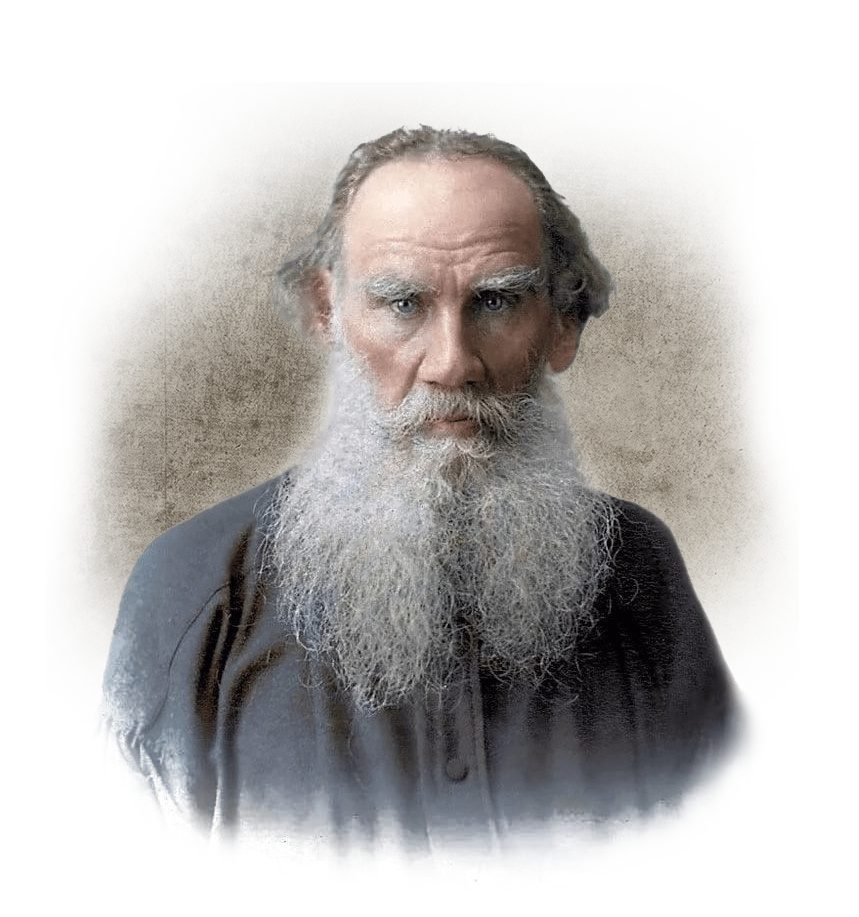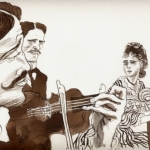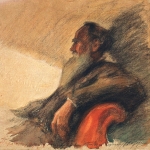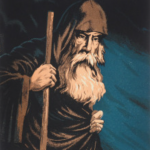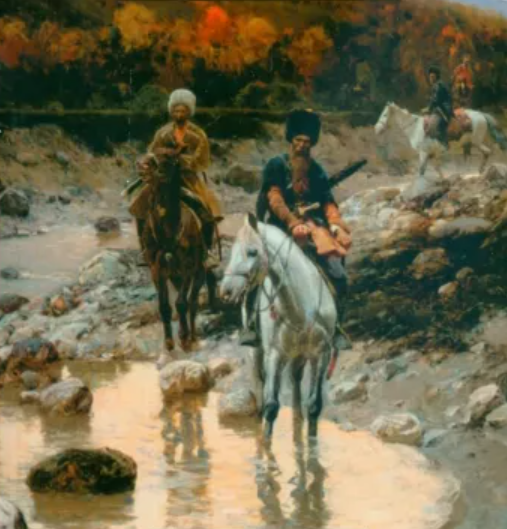
24.12.2022
“The Cossacks” is a novella by Leo Tolstoy published in 1863 about the stay of a cadet in a village of Greben Cossacks.
Creation history
“The Cossacks” was the fruit of a decade’s work by Tolstoy. In 1851 as a cadet he went to the Caucasus; he had to live for 5 months in a Piatigorsk hut, waiting for documents. Much of Tolstoy’s time was spent hunting in the company of the Cossack Yepishka, the prototype of Yeroshka in the future tale. Then he served in an artillery battery stationed at Starogladovskaya village on the banks of the Terek River. The success of his first work (“Childhood”), published in 1852, inspired him to continue his literary work. In the summer of 1853, Tolstoy wrote a chapter of his manuscript, entitled “Terek Line”, about the life of the Cossacks. The narration was conducted on behalf of a man who arrived at the stanitsa, and this method was retained until the last edition of “The Cossacks”. In August, Tolstoy wrote three chapters of the Caucasian novel “The Fugitive”, only small parts of which were included in the final version of “The Cossacks”. The writer did not return to this subject until 1856, when he resumed work on the Cossack novel (without mentioning the officer). The officer appeared in April 1857, when Tolstoy re-wrote three chapters of The Fugitive. It was there that many of the characters of the future Cossacks appeared, albeit sparingly described.
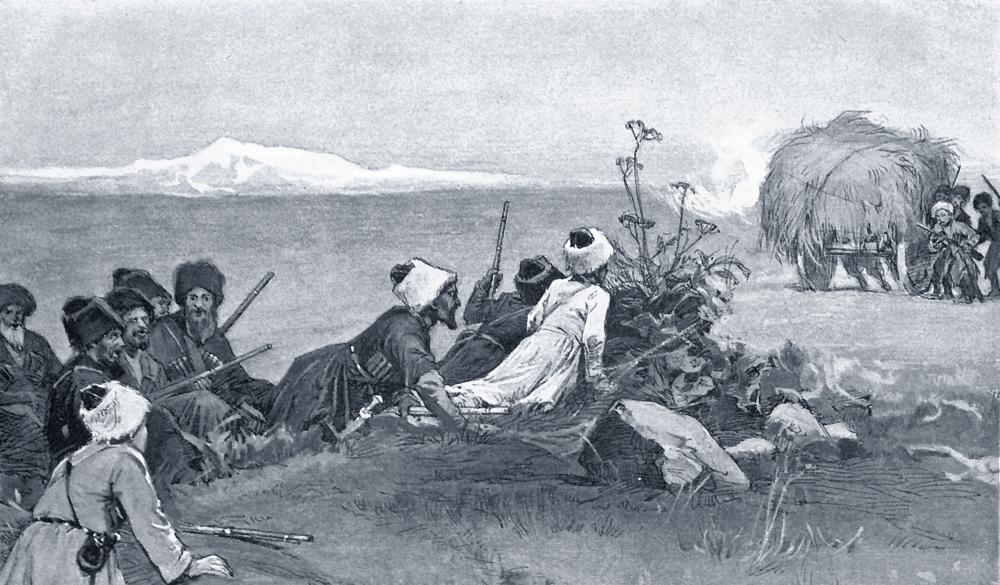
In the spring of 1858 Lev Nikolaevich again worked on the Caucasian novel, and by May, 5 chapters had been written, without much artistic flourish. Although they end with Lukashka’s (then called Kirka) rendezvous with Maryana, the writer had already stopped at the denouement printed in “The Cossacks”. At the same time, the narrative style was translated into the letters of the protagonist, officer Rzhavsky. In the autumn, Tolstoy substantially revised and expanded the same five chapters. In winter, Lev Nikolaevich continued to elaborate and deepen the first part of the Caucasian novel. During a trip to Switzerland in 1860, the writer created a chapter of the third part of the planned novel, where Rzhavsky became Olenin. By February 1862, when Tolstoy returned to the novel, he had already sold the publishing rights to Mikhail Katkov. Having written 3 more chapters of the third part, in which Olenin had already been living with Maryana for 3 years, Tolstoy decided to abandon the creation of the novel. However, Katkov did not agree to take back the payment for the novel, and Leo Tolstoy decided to merge the finished chapters of the novel into a novella. He devoted the summer and autumn of 1862 to this end, adding also some new vivid episodes.
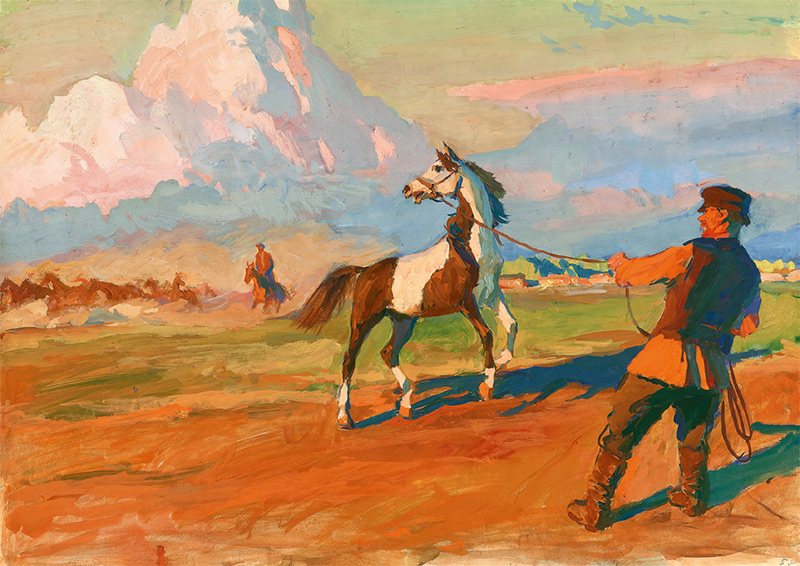
The plot Junker Dmitry Andreyevich Olenin is sent from Moscow to his new army unit in the Caucasus. Moscow, where he has been mixed up in a love story, has bored the young man. On arrival, Olenin is quartered in the village of Novomlinskaya near the Terek, waiting for his regiment. Soon his landlords give their permission in return for the marriage proposal to their daughter Maryana from the daring Cossack Lukashka. Olenin, having befriended the old Cossack Eroshka, begins to hunt in the neighbourhood, and soon he awakens in him a love for the local nature and a disdain for the civilisation from which he comes. He is enthralled by the Cossacks who are so unlike the city dwellers, and dreams of becoming one of them himself. Maryana, a young and sturdy Cossack, delights him, though he dares not speak to her. Prince Beletsky, Olenin’s acquaintance from his old life but now a nuisance, arrives and throws a feast, where the cadet gains a rapport with Maryana. Olenin decides to marry Maryana and stay here, securing the girl’s consent to the wedding. Before he can obtain permission from the girl’s parents, Olenin, Lukashka and other Cossacks set out to the river, where several Chechens have crossed to the Cossack bank. The fight ends in victory for the Cossacks, but Lukashka is badly wounded by a Chechen who has taken revenge for the murder of his brother. Lukashka is brought to the village and sent to the mountains to find a doctor who is ready to cure him with medicinal herbs (Lukashka’s fate is unclear.) After the incident, Maryana turns on Olenin and refuses to have any relations with him. Olenin understands there is nothing else for him here and leaves the village.
